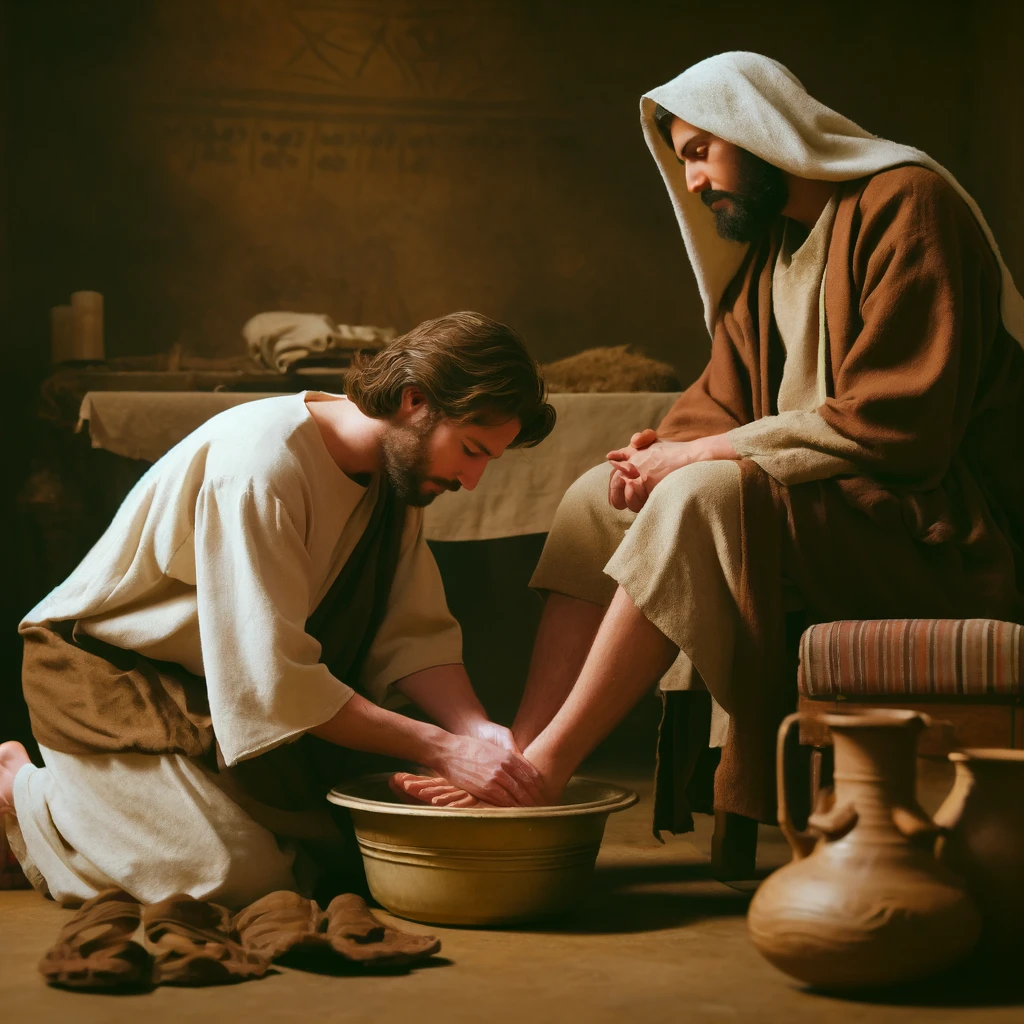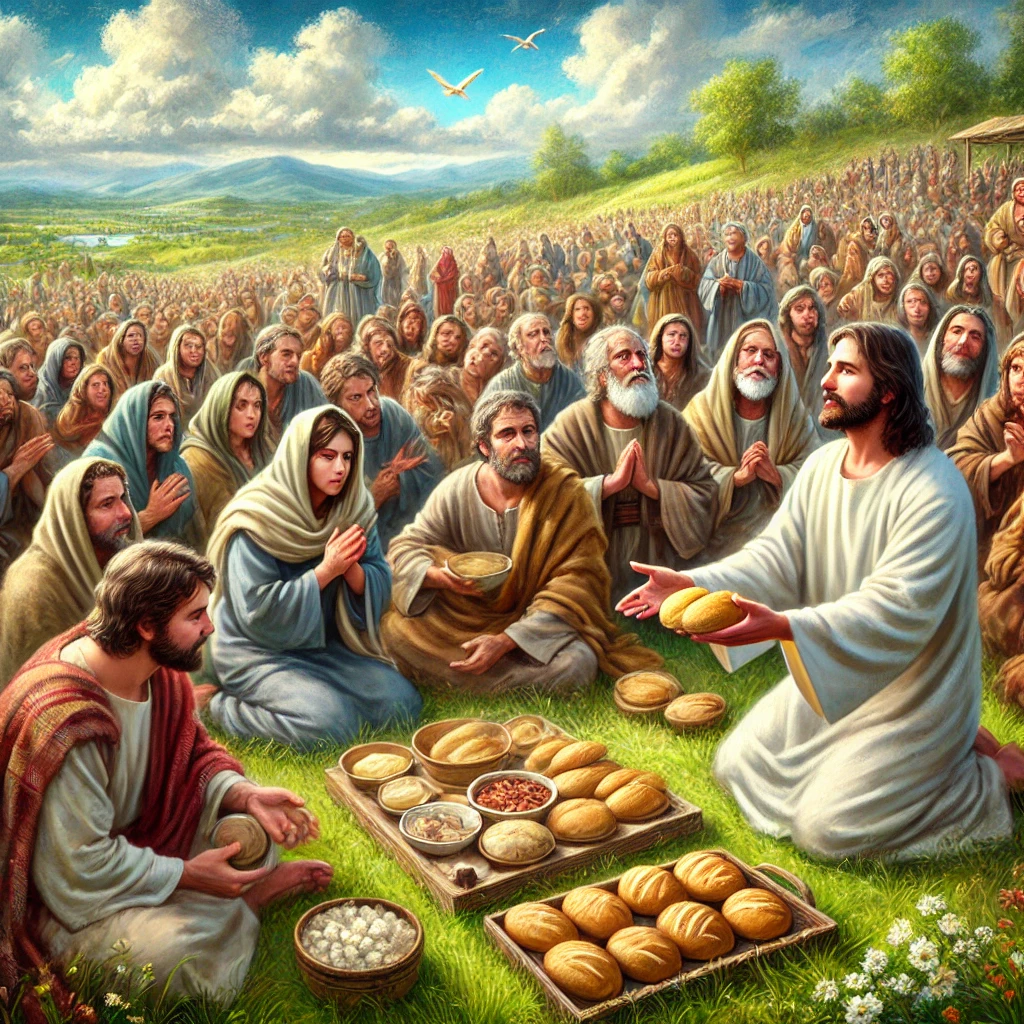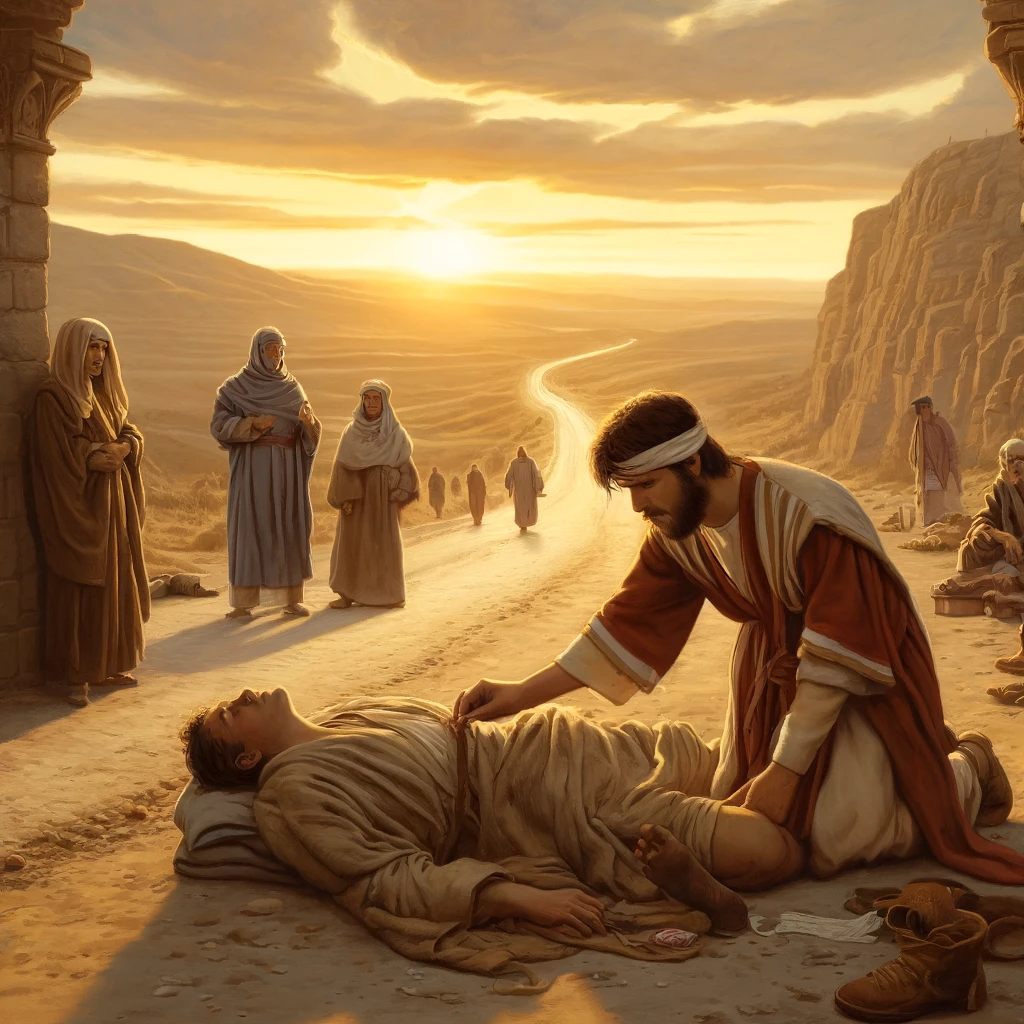Have you ever noticed how much of Jesus’ teachings revolve around love? It’s amazing to think about how transformative love can be when we truly understand it the way Jesus taught. Whether He was healing the sick, comforting the brokenhearted, or challenging His followers to love their enemies, Jesus made it clear that love is at the very core of our faith.
In a world that can often feel divided and harsh, Jesus’ teachings on love offer us a different path—a way of life that brings peace, healing, and connection. Today, I want to explore with you the incredible power of Jesus’ teachings on love and how they can transform our lives, relationships, and even our communities. Let’s dive in and discover how we can live out this kind of love every single day.
1. The Greatest Commandment
Loving God and Others: The Foundation of Faith (Matthew 22:37-39)
When Jesus was asked about the greatest commandment, His response was both simple and profound: “Love the Lord your God with all your heart and with all your soul and with all your mind.” And then He added, “Love your neighbor as yourself” (Matthew 22:37-39).
These two commandments are the foundation of everything we do as Christians. For me, this passage is a reminder that my love for God and my love for others are deeply connected. I can’t claim to love God if I’m not willing to love the people He has placed in my life. It’s a daily challenge, but it’s also incredibly freeing—knowing that, at the end of the day, my faith is about loving well.
Loving God Leads to Loving Others
One of the things I’ve learned is that loving God is what fuels my ability to love others. When I spend time with God—whether in prayer, reading Scripture, or just being still—I find that my heart becomes more aligned with His. His love overflows into my life, making it easier to be patient, kind, and compassionate, even when it’s hard. And let’s be honest, loving others isn’t always easy! But when we allow God’s love to fill us, we can love others in a way that goes beyond our own strength.
Living Out the Greatest Commandment in Daily Life
So, what does it look like to live out this commandment today? For me, it’s about putting God first—seeking His will and letting Him guide my actions. It’s also about making intentional choices to love the people around me, even when I don’t feel like it. Whether it’s helping a neighbor, showing kindness to a stranger, or simply listening to a friend who needs support, love is a choice we make every day. And I believe that when we choose to love, we are participating in something far bigger than ourselves—a glimpse of God’s Kingdom here on earth.
2. Love as Action, Not Just Emotion

The Good Samaritan: A Story of Actionable Love (Luke 10:25-37)
One of my favorite stories Jesus told is the parable of the Good Samaritan. In Luke 10:25-37, Jesus describes a man who is beaten and left for dead on the side of the road. Two people—a priest and a Levite—pass by without stopping to help. But then a Samaritan, someone who would have been looked down upon by the Jews, stops and goes out of his way to care for the wounded man.
This parable always challenges me. It’s a reminder that love is not just about feeling compassion—it’s about taking action. The Good Samaritan didn’t just feel sorry for the man; he did something about it. He took care of him, paid for his recovery, and made sure he was safe. Jesus’ message is clear: real love shows up in practical ways, even when it’s inconvenient.
Examples of Actionable Love Today
In our world today, love as action might look like helping a neighbor carry their groceries, volunteering at a local shelter, or standing up for someone who’s being treated unfairly. It’s not always about grand gestures—sometimes it’s the small, everyday actions that make the biggest difference. I think about the times I’ve been overwhelmed by someone’s kindness, and it reminds me that the little things matter.
Practicing Love Through Service
One of the best ways we can practice love is through service. For me, that means being intentional about finding ways to help others, even if it means stepping out of my comfort zone. Maybe it’s serving in my church, or maybe it’s just being present for a friend who’s going through a tough time. Love isn’t passive—it requires us to get involved and take action. And when we do, we reflect the heart of Jesus to the world around us.
3. Loving Your Enemies
The Challenge of Loving Those Who Oppose Us (Matthew 5:44)
One of the most challenging teachings Jesus gave us is found in Matthew 5:44: “But I tell you, love your enemies and pray for those who persecute you.” I don’t know about you, but loving my enemies is not something that comes naturally. It’s one thing to love my family, friends, or even strangers—but to love someone who has wronged me? That’s a whole different level.
Yet, this is exactly what Jesus calls us to do. He didn’t just tell us to love our enemies; He lived it out. On the cross, Jesus prayed for the very people who crucified Him, asking the Father to forgive them. It’s a powerful reminder that loving our enemies is about choosing to see them the way God does—not as adversaries, but as people in need of grace.
Real-Life Applications and Stories of Reconciliation
I’ve seen firsthand how powerful it can be to choose love over hate. There was a time when I had a falling out with someone close to me. We were both hurt, and the bitterness just grew over time. It wasn’t until I made the decision to pray for them—really pray, not just go through the motions—that my heart began to soften. Eventually, we reconciled, and I truly believe it was God’s love working through that situation.
Loving our enemies doesn’t mean condoning their actions or ignoring the hurt they’ve caused. It means choosing to forgive, letting go of bitterness, and praying for their well-being. It’s about leaving justice in God’s hands and allowing His love to transform our hearts.
Putting Love for Enemies into Practice
So how do we put this kind of love into practice? Start by praying for those who have hurt you. It doesn’t have to be complicated—just ask God to bless them, guide them, and work in their lives. Over time, you may find that your heart begins to change. Another way to love your enemies is by choosing kindness. Maybe it’s a kind word, a small favor, or just refraining from speaking negatively about them. When we choose love, even in the face of opposition, we reflect the radical love of Jesus.
4. The Example of Sacrificial Love
Jesus’ Ultimate Sacrifice (John 15:13)
In John 15:13, Jesus says, “Greater love has no one than this: to lay down one’s life for one’s friends.” This verse points to the ultimate example of love—Jesus’ sacrifice on the cross. He willingly gave His life so that we could be reconciled with God. There’s no greater act of love than giving up everything for the sake of someone else, and Jesus did exactly that for each one of us.
Sacrificial love is at the core of Jesus’ teachings. He didn’t just talk about love—He demonstrated it in the most profound way. His sacrifice wasn’t just for His disciples or those who followed Him; it was for everyone, even those who rejected and opposed Him. This kind of love is radical, and it challenges us to look beyond ourselves and be willing to make sacrifices for the good of others.
What Sacrificial Love Looks Like in Our Relationships
Sacrificial love in our relationships doesn’t always mean giving up our lives, but it does mean giving up our comfort, time, and resources for the sake of others. For me, sacrificial love can look like putting aside my own plans to help a friend in need or choosing to forgive when I’d rather hold onto a grudge. It’s about putting the needs of others before my own, even when it’s inconvenient.
In marriage, friendships, and even our interactions with strangers, sacrificial love means being willing to go the extra mile. It means choosing to serve, even when it’s not easy. I’ve found that when I’m willing to sacrifice for others, I experience a deeper sense of fulfillment and joy. It’s a reminder that true love is not about what we can get, but about what we can give.
Encouraging Selflessness in Everyday Life
How can we cultivate a mindset of sacrificial love in our daily lives? Start small. Look for opportunities to serve those around you. Maybe it’s making a meal for a neighbor, volunteering your time, or simply being present for someone who’s hurting. Sacrificial love is about seeing the needs of others and being willing to step in, even when it costs us something. It’s not always easy, but it’s always worth it. When we choose to love sacrificially, we become more like Jesus, and we make a difference in the lives of those around us.
5. Love Within Community

Importance of Loving One Another Among Believers (John 13:34)
In John 13:34, Jesus gives His disciples a new command: “Love one another. As I have loved you, so you must love one another.” This command is simple yet profound. Jesus knew that the love we have for one another would be one of the most powerful testimonies to the world. The way we treat each other as believers speaks volumes about the authenticity of our faith.
For me, this command is a reminder that being part of a community of believers is not just about attending church or participating in events—it’s about truly loving and caring for one another. It means celebrating each other’s victories, bearing one another’s burdens, and supporting each other in both good times and hard times. The love that Jesus calls us to within our communities is sacrificial, patient, and kind. It’s the kind of love that makes people feel seen, valued, and encouraged.
Building Supportive Faith Communities Through Love
Building a supportive faith community isn’t always easy. It requires vulnerability, patience, and sometimes stepping outside of our comfort zones. But when we choose to invest in each other, the rewards are incredible. I’ve experienced this firsthand through my church family. There have been times when I felt overwhelmed or discouraged, and it was the love of my church community that lifted me up.
One of the most beautiful things about a loving community is that it reflects the heart of Jesus. When we love one another well, we create a space where people feel safe to grow, share, and belong. It’s in these supportive environments that our faith flourishes and our relationships deepen.
Practical Ways to Foster Love in Church and Community Settings
So, how do we foster this kind of love within our communities? Start by being intentional. Reach out to others—whether it’s inviting someone for coffee, offering to pray for someone, or just taking the time to listen. Small acts of kindness can make a big difference. Volunteer in your church or community, and look for ways to serve those around you. And most importantly, be willing to be vulnerable. When we open up about our own struggles and victories, we invite others to do the same, and that’s when true community happens.
6. The Transformative Nature of Love
How Love Can Change Individuals and Communities
I’ve seen firsthand how love has the power to transform lives. Whether it’s a single act of kindness that brightens someone’s day or a lifelong commitment to loving others that changes the course of a family or community, love is truly transformative. When Jesus spoke about love, He wasn’t just giving us a feel-good message—He was offering us the key to real change. Love has the power to heal wounds, restore relationships, and bring hope where there was once despair.
One of the most inspiring things about Jesus’ teachings on love is how they can change not only individuals but also entire communities. When we choose to live out His love in our neighborhoods, workplaces, and churches, we create a ripple effect that touches everyone around us. I think about historical examples like Martin Luther King Jr., who, inspired by Jesus’ teachings, led a movement of nonviolence and love that transformed the course of history. Love isn’t just a nice idea—it’s a force for change.
Historical Examples of Love Leading to Social Change
Throughout history, we see countless examples of love leading to real, impactful change. Whether it was the early Christians caring for the sick during plagues, or modern-day missionaries providing education and healthcare in underserved communities, love in action has always been a catalyst for transformation. One of my favorite examples is Mother Teresa, who dedicated her life to loving the “least of these” in the streets of Calcutta. Her love was a light in the darkness, and her impact is still felt today.
When we choose to love others the way Jesus taught, we’re participating in something much bigger than ourselves. Love has the power to break down barriers, bring reconciliation, and inspire others to do the same. It’s amazing to think about how one person’s choice to love can create a ripple effect that changes lives, families, and even entire communities.
Embracing Love as a Transformative Force
If we want to experience the transformative power of love, it starts with us. We have to be willing to take that first step—to love without expecting anything in return, to serve without recognition, and to forgive even when it’s hard. I know that can be challenging, but I also know that it’s worth it. When we choose love, we invite God to work through us in powerful ways.
Let’s be the kind of people who bring hope, healing, and change through our love. Whether it’s through small acts of kindness or big steps of faith, we can make a difference. Jesus showed us the way, and now it’s our turn to carry that love into the world. Let’s be the hands and feet of Jesus, and let’s watch as His love transforms us, our relationships, and our communities.
Conclusion: Living Out Jesus’ Teachings on Love
As we reflect on Jesus’ teachings, it’s clear that love is more than just a feeling—it’s the foundation of our faith and the key to transforming our lives and communities. From the Greatest Commandment to loving our enemies, Jesus challenges us to live out a radical kind of love, one that is selfless, sacrificial, and active. His example calls us to not only talk about love but to show it in tangible ways every day.
Whether it’s through serving those in need, loving those who have wronged us, or building supportive, faith-filled communities, Jesus’ teachings on love invite us to live differently. I believe that if we truly embrace this kind of love, we can bring real change to our families, workplaces, and neighborhoods.
So, how can you begin to live out Jesus’ love today? Maybe it’s through a simple act of kindness, reaching out to someone who needs encouragement, or choosing to forgive someone who has hurt you. Whatever it looks like, let’s commit to being people who embody Jesus’ love in everything we do. Remember, love has the power to change hearts, heal wounds, and transform the world—one act at a time.
Further Reflection: The Love Behind Jesus’ Sacrifice
As we’ve explored the transformative power of Jesus’ teachings on love, it’s impossible not to be moved by His ultimate act of love—laying down His life for us. If you’d like to dive deeper into understanding the profound love behind Jesus’ sacrifice and why it was necessary, I encourage you to read our post The Love Behind Jesus’ Sacrifice: Why It Was Necessary. It’s a beautiful reminder of just how much God loves us and what that means for our lives today.
Explore More About Love in the Teachings of Jesus
To deepen your understanding of Jesus’ teachings on love and how they can transform your life, I recommend visiting the website of the Bible Gateway. This resource offers a wealth of articles, devotionals, and study tools that explore the theme of love throughout Scripture, providing insights into how to apply these teachings in your daily life.



